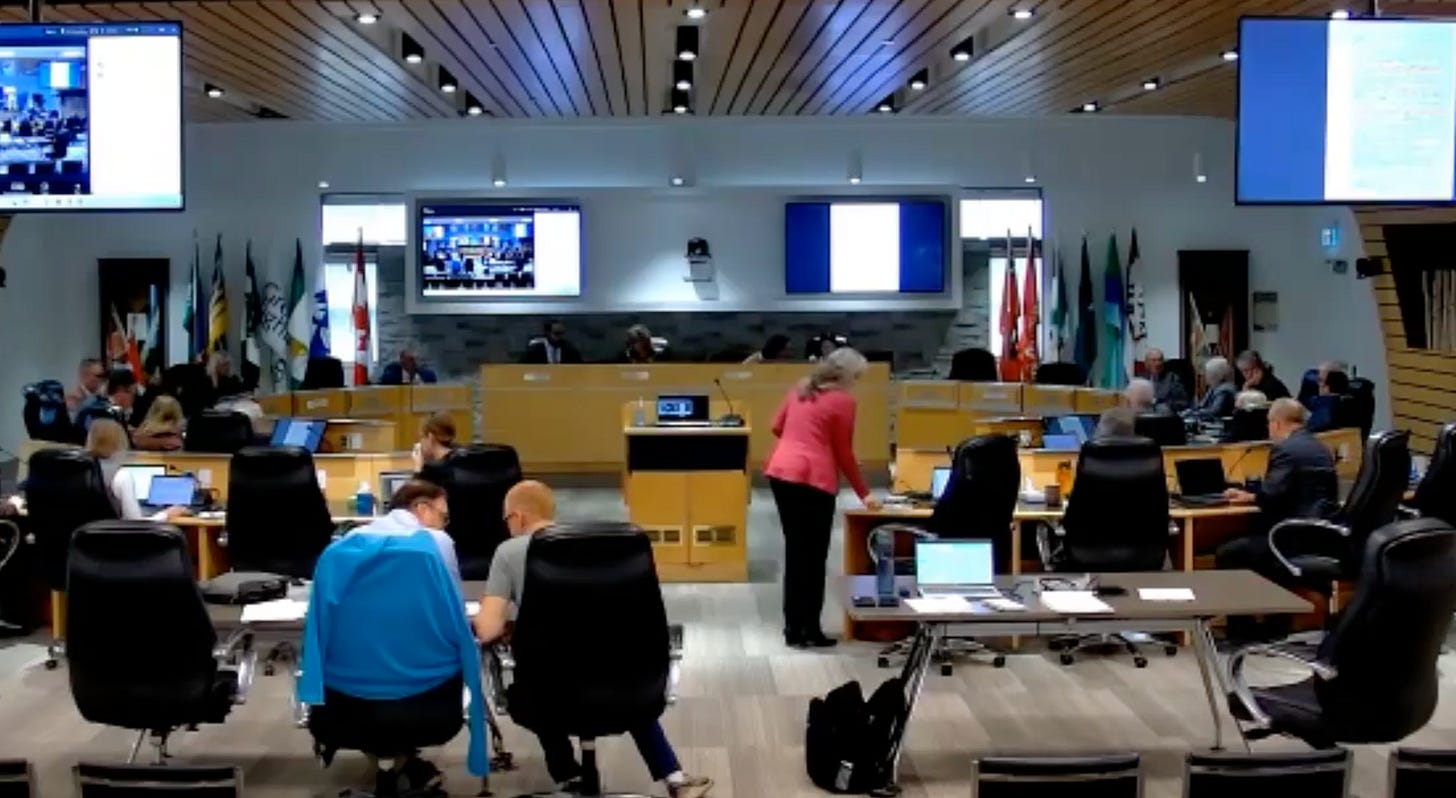Grey County Rejects Industrial Development Charge Holiday, but Review Expected to Return
Grey County Council has voted down a proposed suspension of industrial development charges for 2025–26, citing concerns over infrastructure costs. A review of the by-law is expected to return.

Grey County Council rejected a proposal today to suspend industrial development charges (DCs) for 2025 and 2026, a move staff had recommended to boost competitiveness during a period of economic uncertainty.
The proposal, outlined in a staff report at the September 25 council meeting, would have set the industrial portion of non-residential DCs to zero until the end of 2026. It also called for refunding any industrial DCs already paid in 2025—about $25,000 as of July 30—and advancing the next by-law review to begin this year.
CAO Randy Scherzer noted that the final clause of the motion directed staff to begin the 2026 review process before year-end and to cover any 2025 costs from the Development Charges – General Government Reserve.
Scherzer asked if that piece could still be considered, and the Clerk confirmed that it could, but not at that time. Councillors expect the review process will come back to the table separately.
Grey County first introduced non-residential development charges through a 2021 by-law, phased in beginning January 1, 2023. Industrial collections have been modest:
2023: $17,502 from industrial DCs, on $27.9 million in industrial assessment.
2024: $79,846 from industrial DCs, on $21.5 million in industrial assessment.
This year, the rate is $29.86 per square metre—about 75 per cent of the full eligible charge. Unless changed, the full amount will apply in 2026.
Non-residential DC revenues are allocated almost entirely to roads (95.23 per cent), with small amounts to land ambulance (4.06 per cent), development-related studies (0.61 per cent), and provincial offences (0.10 per cent).
Staff argued that while DCs make up only a small portion of overall industrial development costs, suspending them would be one of the few tools municipalities can control to show support for local expansion. They pointed out that five of nine Western Ontario counties with industrial DCs already offer exemptions.
Opposition from Council
Owen Sound Councillor Scott Grieg emphasized that industrial traffic places heavy demands on Grey’s road system, the main recipient of DC revenue. Suspending the charges, he argued, would only shift the costs of growth to reserves, levy increases, or reprioritized capital budgets.
The current development charges by-law remains in effect until January 1, 2027. Council’s decision means no industrial exemption will be in place, but discussion of the by-law review process is expected to return before the end of 2025.


